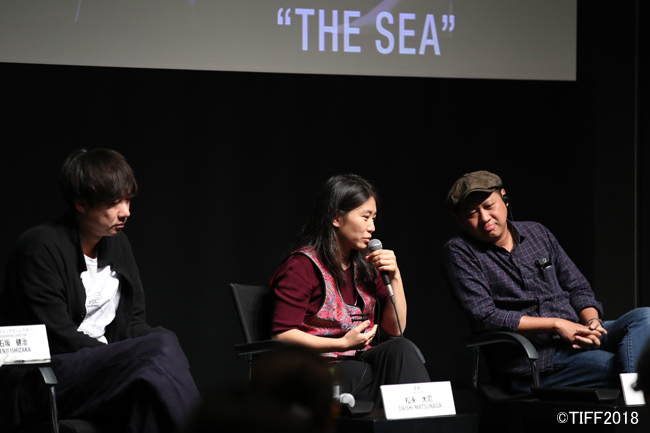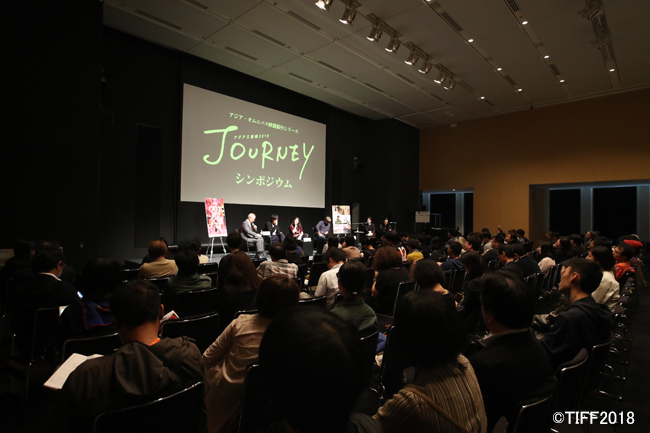The meaning of cultural exchange in an omnibus production
Ishizaka: Speaking of how we make omnibus films, one way is to shoot each episode separately in different locations with a common concept and simply combine them, but in this project the three directors had a few discussions together and then separately filmed with the intention in their minds to have a linkage with each other's episodes. So, one of the linkages they decided was the appearance of Nicholas Saputra in all three episodes. So, I am not sure whether it was on purpose, but the result was interesting to see him presenting as a kind of catalyst. So Edwin, what do you think about this?
Edwin: It is interesting to see my friend Nicholas also sharing some cinematic function and different views in these episodes. In Degena's The Sea, he has only one short piece of dialogue that seems of no consequence, but it can be a commentary from one of the audience about the situation the mother and daughter are facing, and in Daishi's Hekishu, I see him as another "Variable No.3" who tries to disrupt the protagonist. So, at the end we see a lot of linkages and similarities in terms of feelings and contexts, but we didn't really work at it on purpose. That is really beautiful because it shows that these episodes themselves are organically beautiful.
Degena: I agree very much with Edwin that this happened organically. I was the first one who finished the scriptwriting but my producer didn't give me any indication or limitations, and we directors had discussions, but we didn't really discuss the details of the films, such as what we wanted to express most, but instead we casually tried to know each other better. So, I think this is the way the result became organically beautiful, more than I expected. In the end, I found that we were actually the mirror of each other, but not deliberately.

Ishizaka: Thank you very much for your comments. Last but not least, Daishi, what did you discover about this kind of cultural exchange project? Please give your comments of the significance, as well as the results of this project.
Matsunaga: One thing I thought is that Degena and Edwin and I work in different countries of course where the situation of the film industries is different, but their way of looking at things is very serious and sincere, the same as me, and I felt empathy with them. Also, I was very excited to know that we all have different approaches to being fully creative. Probably the directors are the ones who learned the most from this project. We all live in Asia, but as if looking through a mirror, we just do things differently as we approach the same goal. So that is the biggest thing I learnt.
Q&A session with audiences
Audience: I am a high school student and I want to be a film director in the future.
What do you think is essential in a person to become a director?
Degena: I am not sure I could give you perfect advice but in my case, I am a very lonely person, and I am not sure about other directors, but for me film is the way I express myself and by making films I discover and project the deeper emotions inside myself. I think we are not just trying to communicate with each other and understand other people better, but we actually understand ourselves better. So, I believe that speaking and revealing our true feelings is the way to become a good director.
Edwin: I am still learning to be a good director, but at the end when I am asked "Why do you make films?" or "What do you need for making films?", there is only one word that I can express. It is "Love". Love for films, love for yourself or your friends or your family. I think film is all about love, and it is always complicated to make films about love, but maybe love and a little bit of honesty help you to do it.

[On October 27, 2018 at Roppongi Academy Hills Tower Hall]
More Information
Asian Three-Fold Mirror 2018: Journey Behind of the Scenes
Asian Three-Fold Mirror 2018: Journey Trailer






